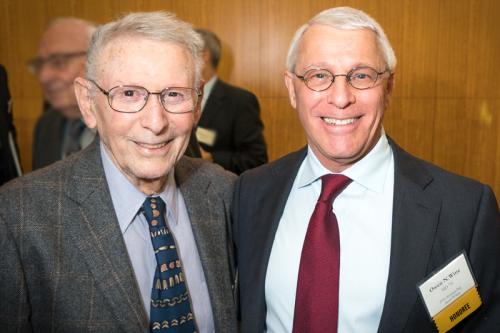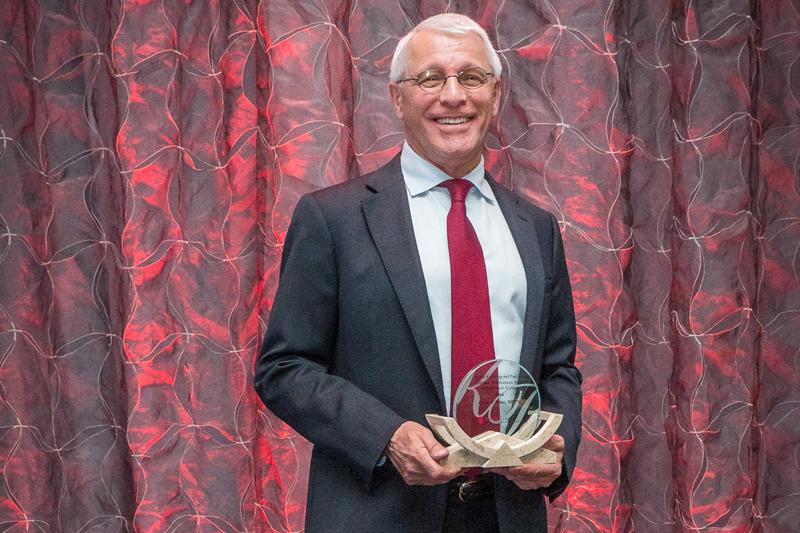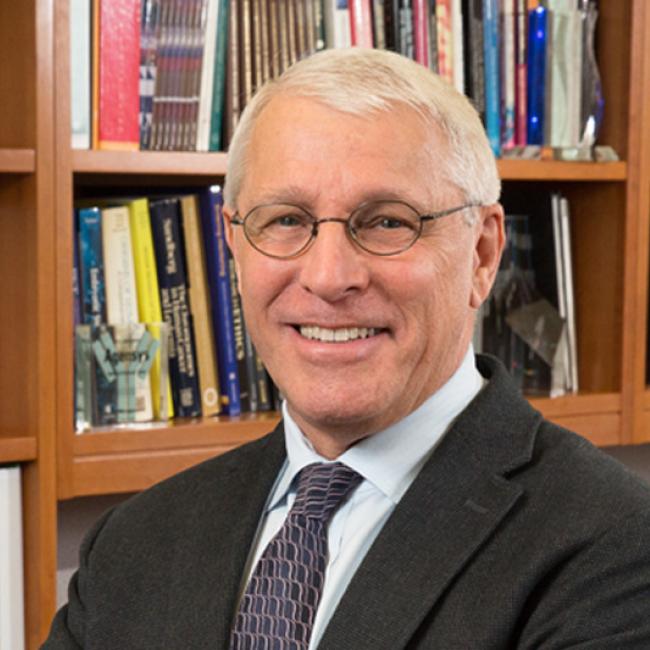
Dr. Owen Witte receives Stanford University alumni award in biomedical sciences
Dr. Owen Witte, founding director of the Eli and Edythe Broad Center of Regenerative Medicine and Stem Cell Research at UCLA, was recently honored with the Stanford Medicine Alumni Association’s prestigious Arthur Kornberg and Paul Berg Lifetime Achievement Award in Biomedical Sciences. He was honored at a dinner held on the Stanford campus on December 5, 2016.
Dr. Witte is known for his significant scientific contributions to the understanding of human leukemias, immune disorders and epithelial cancers. In his director role with the UCLA Broad Stem Cell Research Center, he also advocates for science education funding and creates strategic partnerships that enable collaborative and multidisciplinary groups of clinicians, scientists and engineers to pursue breakthrough research with the shared goal of improving human health.
Dr. Witte earned his M.D. from Stanford in 1976, specializing in molecular virology, immunology and medicine. He completed his predoctoral fellowship in the lab of Dr. Irving Weissman, who is currently the director of the Institute of Stem Cell Biology and Regenerative Medicine at Stanford.

“As a 2016 recipient of the Arthur Kornberg and Paul Berg Lifetime Achievement award, we thank Owen Witte for his groundbreaking research and passion for discovery,” said Stanford University School of Medicine Dean, Dr. Lloyd Minor. “He represents the spirit of excellence, discovery and dedication that is the foundation of Stanford Medicine. He serves as an inspiration to the Stanford alumni community, to our faculty, staff, and supporters and certainly to all our current and future students who aspire to make a difference.”
The Arthur Kornberg and Paul Berg Lifetime Achievement Award in Biomedical Sciences honors the legacy of Arthur Kornberg, MD, and Paul Berg, PhD, medical science pioneers and Nobel laureates who brought to Stanford a passion for discovery and groundbreaking research. Established in 2010, this award acknowledges and celebrates the lifetime career achievements of Stanford University School of Medicine alumni in the biomedical sciences. Several previous winners have gone on to win other prestigious awards including the Nobel Prize.
